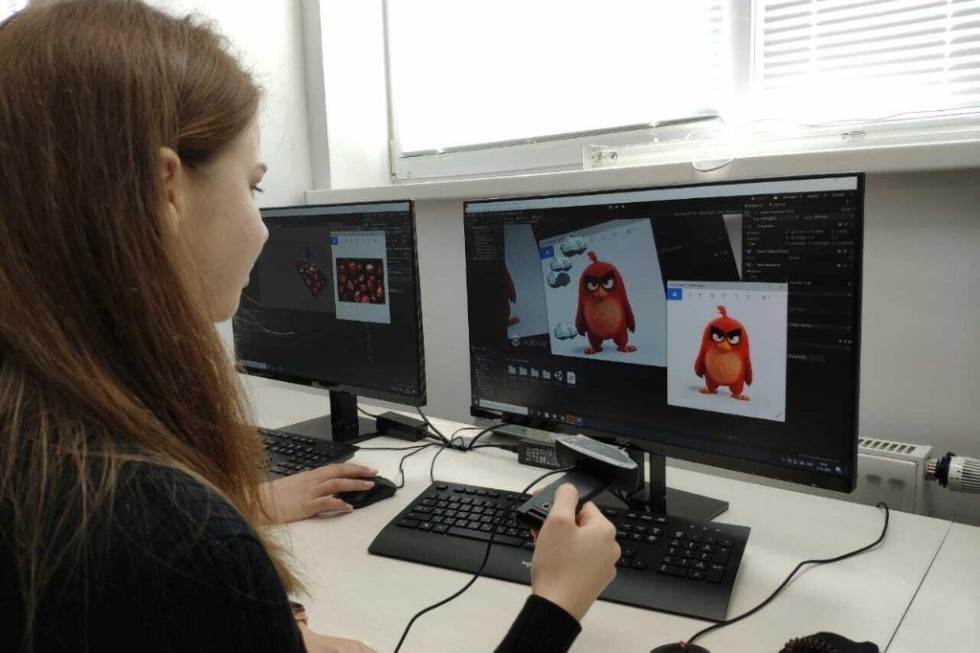Mathematics and Informatics
| Bachelor degree program |  |
 |
|
| Graduating Chair |
| About program |
Training program
Within the framework of the program, we train teachers of mathematics and computer science in accordance with the requirements of the Federal State Standard of Higher Education and the Professional Standard of a Teacher.
Demand for the program
The training program 44.03.05 Teacher Education (with two profiles of training), profile: «Mathematics and Informatics» makes it possible for a university graduate to acquire competencies that ensure his demand as a specialist in the field of basic general, secondary general and additional education.
The direction «44.03.05 Teacher Education (with two profiles of training)» is included in The list of in-demand professions and specialties corresponding to the priority areas for the development of the economy of the Republic of Tatarstan for 2022-2028.
Why should you choose to study at Elabuga Institute of KFU?
Education at Elabuga Institute of KFU is distinguished by enhanced practice-oriented training of future teachers based on the best Russian traditions and foreign experience. The assimilation of practical skills and competencies by students is supported by digital resources, technical capabilities of imitation and gamification of the educational process. Key disciplines are taught by experienced highly qualified teachers using the latest equipment.
Elabuga Institute of KFU has a specific developing educational environment for the formation of professional competencies of future teachers through the implementation of a number of educational, scientific and social projects in which students take an active part.
What will you study?
Within the framework of the training program 44.03.05 Teacher Education (with two profiles of training), profile: «Mathematics and Informatics», the following compulsory subjects are studied: mathematics and the basics of mathematical information processing, mathematical analysis, algebra, geometry, general and experimental physics, differential equations, theory of functions of a real variable, function theory of complex variable, theory of stability, methods of teaching mathematics, methods of teaching physics, methods of solving problems in physics.
The following disciplines are studied as additional ones: probability theory and mathematical statistics, mathematical logic and algorithm theory, numerical methods, discrete mathematics, number theory, elementary mathematics, numerical systems, history of mathematics, programming and robotics, computer modeling, foundations of artificial intelligence, operating systems, theoretical informatics, methods of preparation for solving problems of RSE in informatics, history of informatics, etc.
Psychological, pedagogical and methodological training of future teachers is carried out within the framework of the following main modules: "Communications in professional interaction", "Psychology of education", "Pedagogy", "Fundamentals of leaders' activities". The main educational program, in addition to the above-mentioned disciplines, includes various types of practice, including practice in obtaining primary skills and skills in research work, which involves the participation of students in various conferences, seminars, publishing scientific articles.
Areas of professional activity
Graduates who have mastered the program can carry out professional activities in the following areas: education, social sphere and culture.
| Form of study | Duration of study | Number of quotas in 2024 and tuition fees | |||||||||||||||||||||
| full-time on the basis of SGE, VE (SVE (+PVE), HE) |
5 years |
|
|||||||||||||||||||||
|
The total number of quotas can be distributed among several profiles. |
Additional Information





